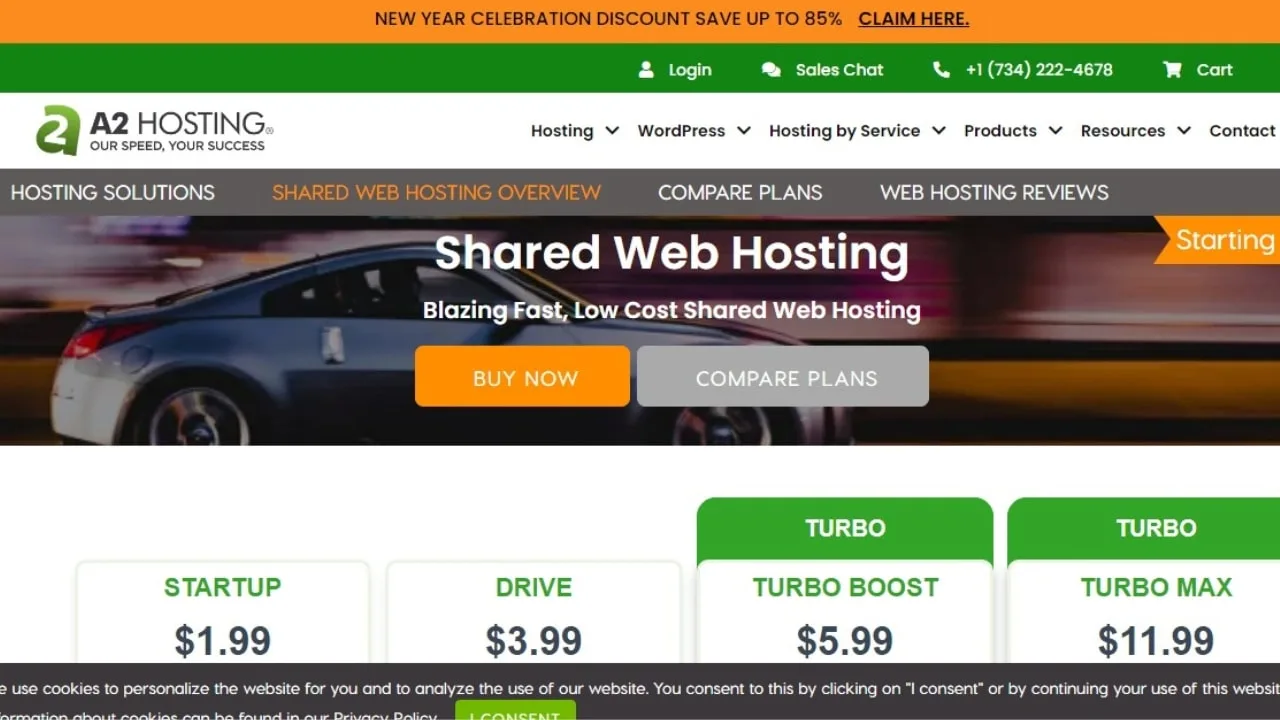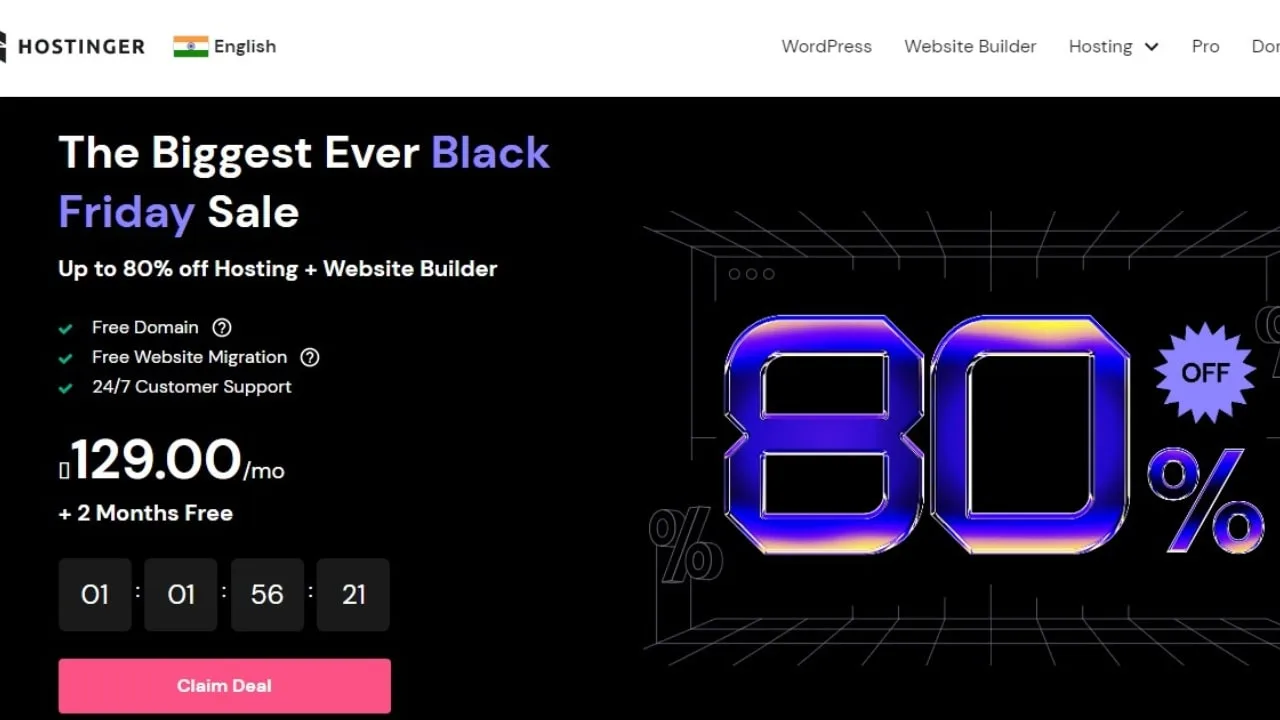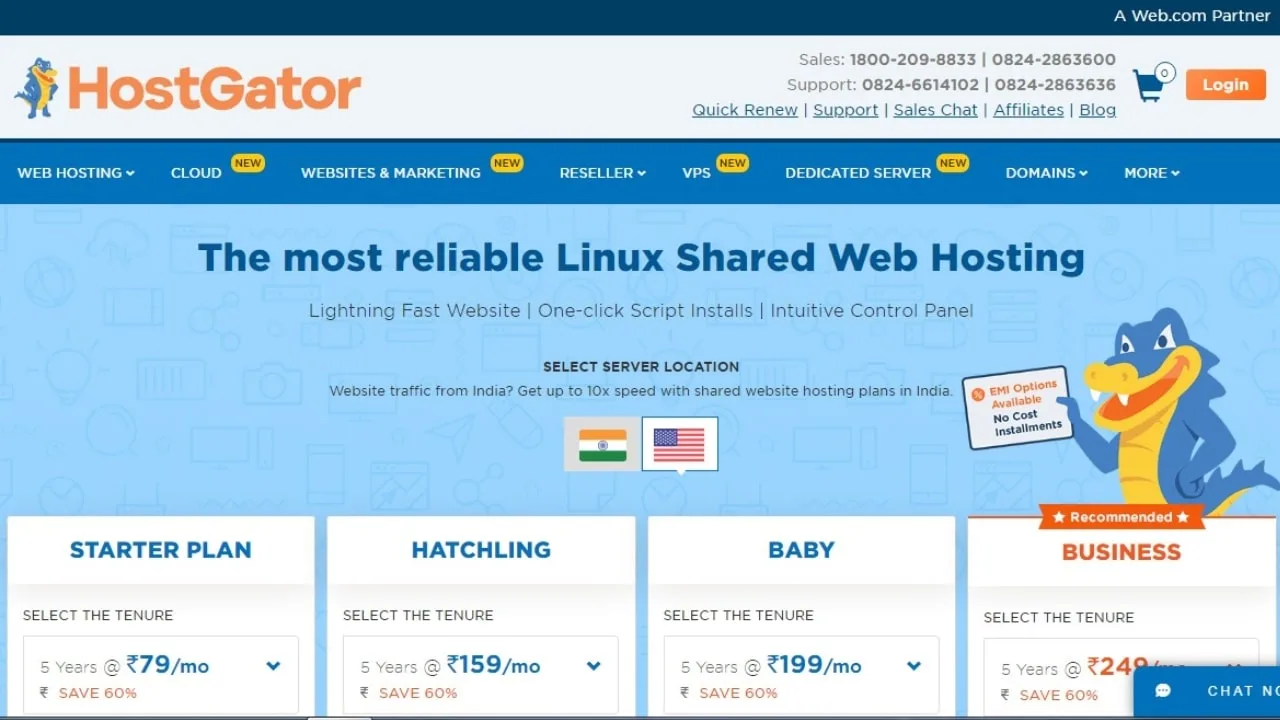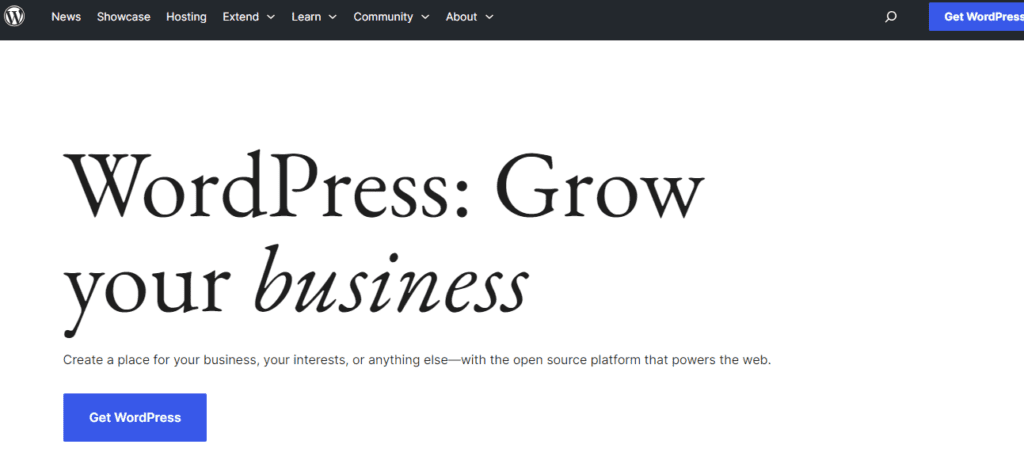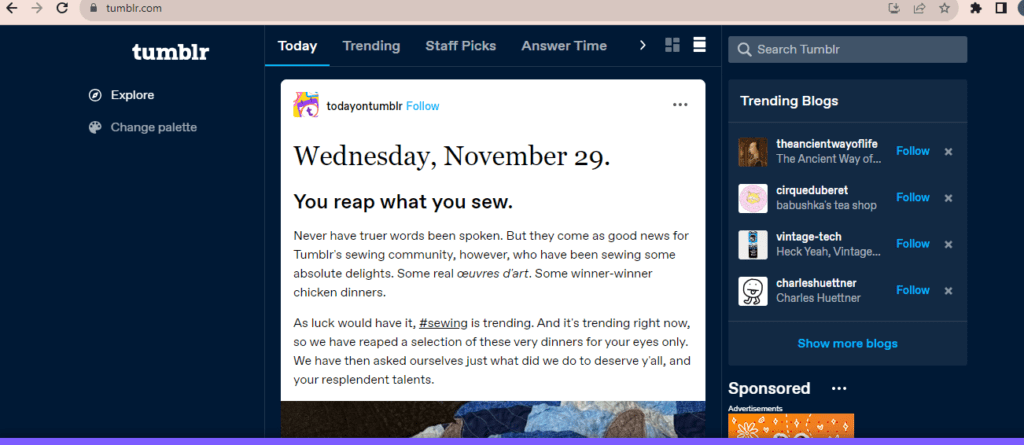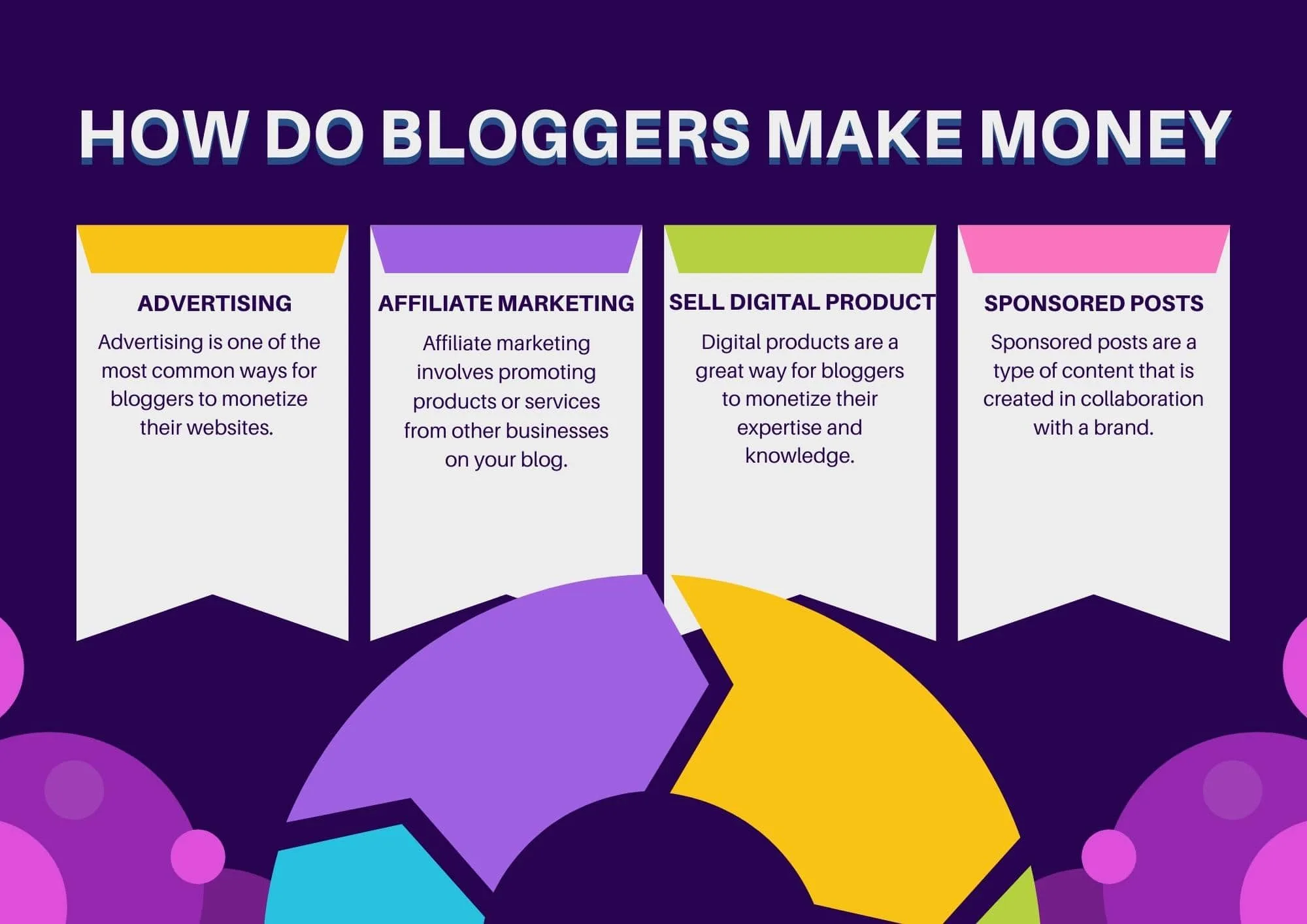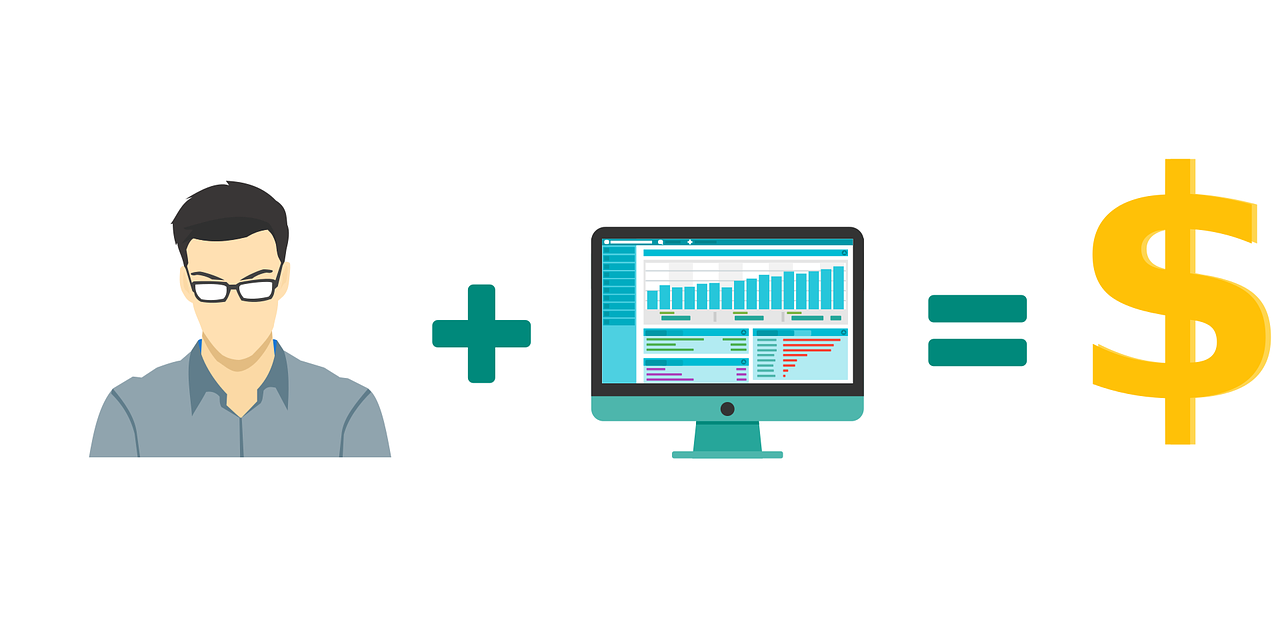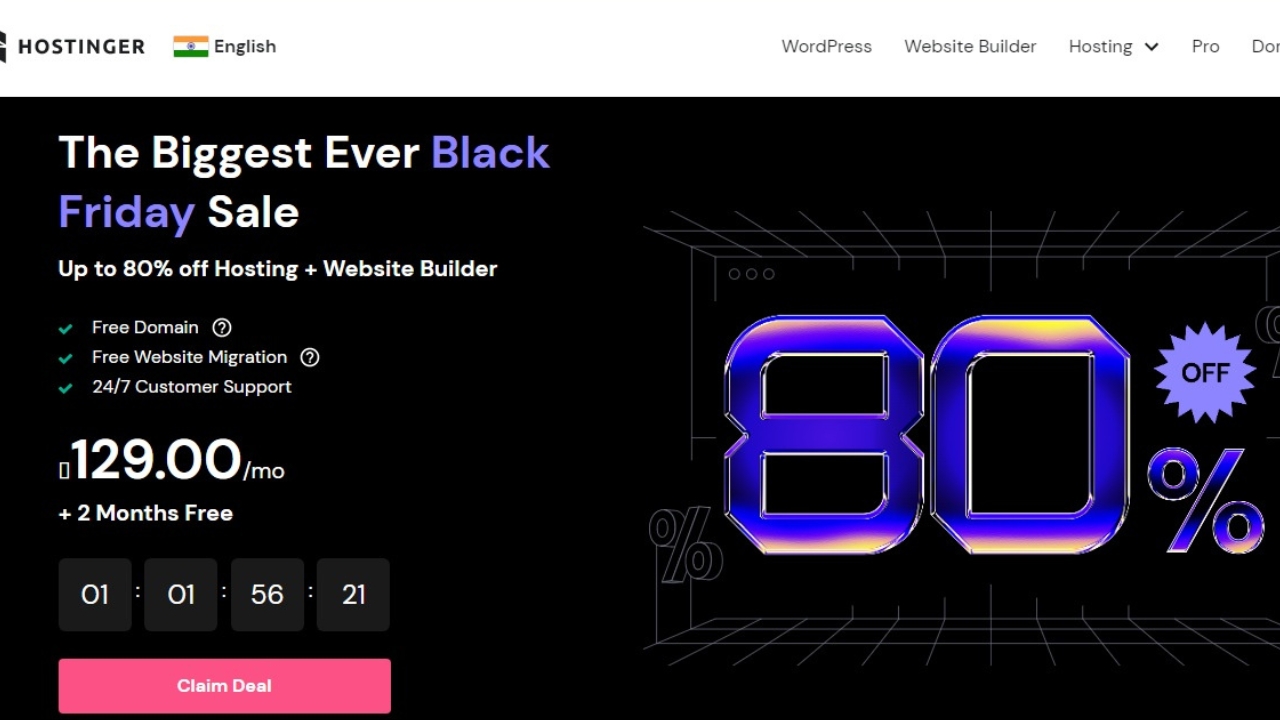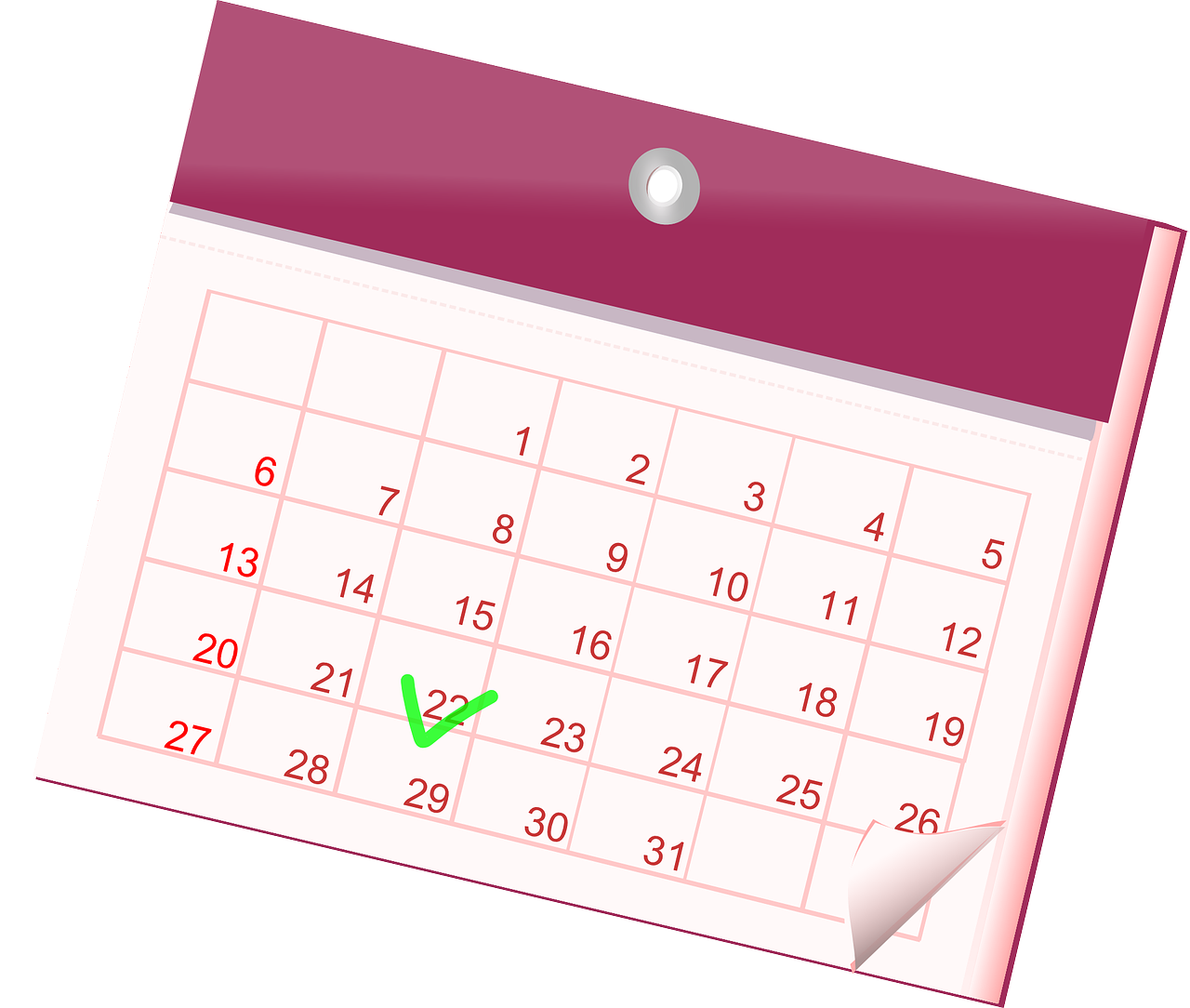Best Blog Hosting Sites For Beginners And Startup Bloggers

Imagine your website as a beautiful house, wouldn’t it need a place to stand? That’s exactly what website hosting is! It’s like finding the perfect plot of land where you can build your online dream home. But with so many options around, choosing the right hosting service can feel like navigating a maze.
Now, you’re a startup, just starting your journey, so you don’t want to break the bank on something too fancy. At the same time, you wouldn’t want to settle for a breakable tent that won’t stand the test of time. You need a place that’s just right, a place that fits your budget and gives your website the solid foundation it deserves.
Think of it like choosing a neighbourhood for your house. Some areas are super expensive, while others are so cheap you wonder if the ground is even stable. You want a place that’s affordable, safe and has all the essential utilities you need, like electricity and water.
In the world of website hosting, those “utilities” translate to things like bandwidth, storage space, and security features. You need enough of all these things to keep your website running smoothly, without breaking the bank.
So, before you pick a website hosting service, take a deep breath and ask yourself: “What kind of foundation do I want for my online home?”Are you already dreaming of a large house, or do you need a quiet one-bedroom flat to start? Once you know your budget and your needs, finding the perfect hosting service will be a breeze!
Table of Contents
Turn your ideas into a polished e-book in just weeks with our online course.
You’ll learn:
- Crafting a captivating hook and outline
- Structuring your content for maximum impact
- Writing clear and engaging prose
- Designing a beautiful and professional layout
- Marketing your e-book to the world
No experience is needed! Just passion and a willingness to learn.
Enroll now and get:
- Lifetime access to the course materials
- Expert instructor support
- A supportive community of fellow writers
Don’t let your e-book dream gather dust. Take action today!
P.S. The first 10 students get a free bonus e-book template!
Let’s make your e-book a reality!
Fill The Form
1.SiteGround: A Reliable Choice for Beginners and Startups
If you’re new to the world of website building, you’ve likely encountered the name SiteGround. This popular web hosting provider consistently ranks high in reviews and recommendations, but is it a good fit for beginners and startups?
The answer is a resounding yes. SiteGround offers a compelling package of features and services that cater specifically to the needs of inexperienced users and new businesses.
Here’s why SiteGround is an excellent choice:
- Affordable Premium Service: While not the cheapest option, SiteGround delivers exceptional value for its price. You’ll enjoy features typically found in more expensive plans, making it a fantastic choice for those seeking a premium experience without breaking the bank.
- Unparalleled Uptime and Security: SiteGround boasts an industry-leading uptime guarantee, ensuring your website remains accessible and operational for maximum online exposure. Additionally, their consistent security monitoring and proactive measures provide peace of mind, protecting your data and website from potential threats.
- Beginner-Friendly Interface and Tools: SiteGround’s user-friendly control panel and intuitive interface make managing your website a breeze, even for those with limited technical knowledge. They also offer helpful tools and resources, including a comprehensive knowledge base and video tutorials, to guide you through the process.
- Expert Customer Support: One of SiteGround’s greatest strengths is its exceptional customer support. Their knowledgeable and friendly team is available 24/7 through various channels, offering prompt and efficient assistance with any questions or challenges you may encounter.
- Scalability for Growth: As your startup flourishes and your website traffic increases, SiteGround’s flexible hosting plans can accommodate your evolving needs. They offer a range of upgrade options, ensuring you can seamlessly scale your hosting resources without disruption or downtime.
Overall, SiteGround provides a comprehensive and reliable solution for beginners and startups seeking a trustworthy and user-friendly web hosting provider. Their commitment to excellent service, affordable pricing, and industry-leading features make them a strong contender for your website’s foundation.
2. A2 Hosting: A Diverse Choice for Budget-Conscious Beginners:
A2 Hosting, a privately held company based in the USA, has earned a reputation for its exceptional customer service and diverse web hosting packages. Whether you’re a beginner building your first website or a startup seeking a budget-friendly solution, A2 Hosting offers several compelling options.
One of A2’s key strengths is its wide range of hosting plans. With over 20 different options to choose from, you can find a plan that perfectly aligns with your specific needs and budget. They offer both Linux and Windows hosting, catering to diverse technical preferences.
Several factors make A2 Hosting particularly attractive to beginners:
- Affordable Pricing: Most A2 Hosting plans are very budget-friendly, making them an excellent choice for those starting out and operating on a tight budget.
- Anytime Money-Back Guarantee: A2 Hosting offers an “Anytime Money-Back Guarantee,” which provides peace of mind and allows you to try their services without financial risk.
- User-Friendly Interface: A2 Hosting’s control panel is designed to be intuitive and easy to navigate, even for those with limited technical experience.
- Free Website Migration: A2 Hosting offers a free website migration service, making the transition from your previous hosting provider seamless and stress-free.
- 24/7 Customer Support: A2 Hosting’s knowledgeable and responsive customer support team is available 24/7 to assist you with any questions or challenges you may encounter.
While A2 Hosting might not be the top choice for users requiring the absolute peak of server performance, it offers a compelling combination of affordability, diverse options, and excellent customer support. This makes it a strong contender for beginners and startups seeking a reliable and value-driven web hosting solution.
3. Hostinger: (A Powerful Solution for Scalability, Reliability, and Performance)
Hostinger offers several advantages over traditional web hosting solutions, making it a compelling choice for websites seeking high performance, robust scalability, and unmatched reliability.
Here’s a closer look at its key benefits:
- Scalability on Demand: Hostinger Cloud Hosting leverages the power of cloud technology, allowing you to seamlessly scale your website resources (CPU, RAM, storage) up or down based on your evolving needs. This ensures your website can handle fluctuating traffic levels without compromising performance or incurring unnecessary costs.
- Uncompromising Reliability: Unlike traditional hosting, which relies on single servers, Hostinger utilizes multiple servers to host your website. This redundancy ensures that even if one server experiences an issue, another seamlessly takes over, preventing downtime and maintaining website accessibility.
- Blazing-Fast Performance: Hostinger employs a Content Delivery Network (CDN) to deliver your website content quickly to users worldwide. This geographically distributed network of servers caches static content, resulting in faster loading times and a smoother user experience, regardless of their location.
- Enhanced Security and Protection: Hostinger prioritizes security by implementing advanced features like regular automated backups, industry-standard SSL certificates, and robust DDoS protection. These measures safeguard your website data and prevent unauthorized access, ensuring your online presence remains secure and protected.
- Cost-Effective Flexibility: Hostinger offers a range of affordable pricing plans with varying resource allocations. This flexible approach allows individuals and businesses to choose the plan that aligns best with their website’s specific needs, maximizing efficiency and cost-effectiveness.
Hostinger provides a powerful and versatile solution for website owners and businesses seeking a reliable, scalable, and secure hosting environment. Its combination of on-demand scalability, unmatched reliability, blazing-fast performance, enhanced security, and cost-effective flexibility makes it a compelling choice for websites of all sizes and complexities.
4. HostGator: A Budget-Friendly Choice for Beginners and Startups:
HostGator is a popular web hosting provider that caters to beginners and startups with its affordable plans and excellent service. If you’re on a tight budget but still want a reliable and feature-rich hosting solution, HostGator is a great option to consider.
Here’s what makes HostGator a compelling choice for beginners and startups:
- Affordable Pricing: HostGator offers some of the most affordable web hosting plans in the market, making it an accessible option for those on a budget. You can get started with a basic shared hosting plan for a very low price, perfect for small websites and new projects.
- Diverse Hosting Options: HostGator provides a wide range of hosting plans to cater to various needs and budgets. Whether you need shared hosting, dedicated hosting, VPS hosting, or even WordPress-specific hosting, HostGator has a plan for you.
- 45-Day Money-Back Guarantee: HostGator allows you to test their services risk-free with a generous 45-day money-back guarantee. This ensures that you’re not locked into a contract you’re not satisfied with.
- High Uptime and Performance: HostGator boasts impressive uptime and server response times, ensuring your website remains accessible and responsive for optimal visitor experience.
- Free Features: HostGator includes a variety of valuable features with its hosting packages, such as free domain names, free SSL certificates, and free website migration. These features can save you money and simplify the website setup process.
- 24/7 Customer Support: HostGator provides email, live chat, and phone help around the clock. Their knowledgeable and friendly support team is always available to assist you with any questions or technical issues you may encounter.
While HostGator might not be the best option for users with high-traffic websites or demanding resource requirements, it offers an excellent balance of affordability, diverse options, and reliable service. This makes it a strong contender for beginners and startups taking their first steps into the online world.
5. Bluehost: (A Trusted Choice for WordPress Users and Beginners)
Bluehost is a highly popular web hosting provider, renowned for its user-friendly platform and excellent service. It stands out for its official recommendation by WordPress, making it a natural choice for users planning to build a WordPress website.
Here’s why Bluehost is a good choice for beginners and startups:
- Officially Recommended by WordPress: Bluehost is one of the few web hosting providers officially endorsed by WordPress, making it a safe and reliable choice for those building WordPress websites.
- Easy-to-Use Interface: Bluehost’s control panel is designed to be intuitive and easy to navigate, even for users with limited technical experience. This makes it simple to manage your website settings, install applications, and configure various features.
- Free Domain Name: Bluehost offers a free domain name for the first year with all new hosting accounts. This can save you money and simplify the website launch process.
- 30-day Money-Back Guarantee: Bluehost offers a 30-day money-back guarantee, allowing you to try their services risk-free and ensure they meet your needs before making a long-term commitment.
- Wide Range of Features: Bluehost includes a variety of valuable features with its hosting plans, such as free SSL certificates, website backups, email accounts, and access to a vast library of WordPress themes and plugins.
- 24/7 Customer Support: Bluehost offers 24/7 customer support via phone, live chat, and email. Their knowledgeable and friendly support team is always available to assist you with any questions or technical issues you may encounter.
While Bluehost might not be the most powerful or feature-rich option for high-traffic websites, it provides a reliable and user-friendly platform for building and managing a WordPress website. Its close partnership with WordPress and its focus on beginner-friendly features make it a strong contender for startups and individuals new to website creation.
6. Cloudways: (Scaling Your Website Performance with Managed Cloud Hosting)
If you’re seeking a high-performance web hosting solution to boost your website’s speed and scalability, Cloudways presents a compelling option. While typically beginners start with shared hosting, Cloudways offers a unique approach with its managed cloud hosting platform.
Here’s how Cloudways can benefit both beginners and startups:
- Enhanced Performance: Cloud hosting utilizes powerful servers and advanced technologies, delivering significantly faster loading times and improved website responsiveness compared to traditional shared hosting. Better user experiences and possibly increased conversion rates result from this.
- Pay-As-You-Go Billing: Unlike conventional hosting plans with fixed monthly fees, Cloudways charges hourly based on your actual resource usage. This flexible billing model allows you to scale your resources up or down easily and only pay for what you use, making it budget-friendly, especially for startups with fluctuating traffic levels.
- Managed Solutions: Cloudways takes care of the server-side management, including server maintenance, security updates, and performance optimization. This frees up your time and resources to focus on your core business and website development, allowing you to leave the technical complexities to the experts.
- 24/7 Expert Support: Cloudways provides 24/7 customer support through various channels, including live chat, email, and ticketing systems. Their knowledgeable and responsive team is readily available to assist you with any questions or technical issues you may encounter.
- Scalability: Cloudways allows you to easily scale your resources up or down as your website traffic grows. This ensures your website can handle increasing traffic without compromising performance, providing flexibility and future-proofing your hosting solution.
- Multiple Cloud Providers: Cloudways collaborates with leading cloud providers like DigitalOcean, AWS, and Google Cloud Platform. This allows you to choose the best cloud provider that aligns with your specific needs and budget.
- Application-Specific Optimization: Cloudways offers pre-configured servers optimized for popular applications like WordPress, Magento, and PHP. This ensures your chosen application runs smoothly and efficiently on the chosen cloud provider, maximizing performance and optimization.
While Cloudways might require a slightly higher initial investment compared to shared hosting, it offers a comprehensive solution for those seeking superior performance, scalability, and managed services. This makes it a powerful option for startups and businesses looking to scale their online presence and ensure optimal website performance.
7. GreenGeeks: (A Sustainable Hosting Choice for Eco-Conscious Businesses)
GreenGeeks is a web hosting provider that stands out for its commitment to environmental sustainability. By utilizing renewable energy sources and implementing energy-efficient technologies, GreenGeeks provides a green hosting solution for eco-conscious individuals and businesses.
Beyond their environmental focus, GreenGeeks offers several compelling features:
- Environmentally Friendly Infrastructure: All GreenGeeks data centres operate on renewable energy sources, such as wind and solar power, minimizing environmental impact and reducing carbon footprint.
- Comprehensive Hosting Solutions: GreenGeeks offers a variety of hosting plans to suit different needs and budgets, including shared, VPS, dedicated, and reseller hosting. This flexibility allows you to choose the plan that best aligns with your website’s requirements.
- Affordable VPS Hosting: GreenGeeks’ VPS hosting plans are particularly popular among customers due to their competitive pricing and generous resource allocation. This makes them a great choice for startups and businesses seeking reliable and affordable VPS solutions.
- Abundant Free Features: GreenGeeks includes various valuable features in its hosting plans, such as free site migration, a free domain name for the first year, free SSL certificates, and free SSD storage. These features add significant value and streamline the website setup process.
- User-Friendly Interface: GreenGeeks’ control panel is designed with user-friendliness in mind, making it easy to manage your website settings, install applications, and configure various features, even for individuals with limited technical experience.
- 24/7 Customer Support: GreenGeeks offers responsive and knowledgeable customer support 24/7 via live chat, phone, and email. Their dedicated support team is always available to assist you with any questions or technical issues you may encounter.
By combining environmental responsibility with a comprehensive range of features, GreenGeeks presents an attractive option for individuals and businesses seeking a reliable and eco-friendly web hosting solution. Whether you’re a startup owner, an environmentally conscious individual, or simply looking for a green alternative, GreenGeeks offers a compelling choice that aligns with your values and technological needs.
8. Liquid Web: (Prioritizing Top-Tier Customer Support for Beginners)
Liquid Web boasts a well-earned reputation for its exceptional customer support, consistently ranking among the best in the industry.
While factors like price, server performance, and uptime are crucial when choosing a web hosting service, for beginners, one element often takes centre stage: customer support. This is where Liquid Web shines.
They prioritize customer satisfaction and offer several features that demonstrate this commitment:
- Guaranteed 59-Second Response Time: Liquid Web offers a unique guarantee that their customer support team will respond to inquiries within 59 seconds. This lightning-fast response time ensures you get the support you need quickly and efficiently, minimizing downtime and frustration.
- Highly Knowledgeable and Responsive Team: Liquid Web’s customer support team is composed of knowledgeable and experienced professionals who are well-equipped to answer any questions or address any technical issues you may encounter. They are friendly, patient, and dedicated to resolving your concerns promptly and effectively.
- Multiple Support Channels: Liquid Web offers a variety of support channels to cater to different preferences and situations. You can reach their support team via phone, live chat, email, and even a dedicated support portal. This ensures you can access the help you need in the way that is most convenient for you.
- 24/7 Availability: Liquid Web’s customer support team is available 24/7, 365 days a year. This means you can get help anytime, regardless of the time zone or your schedule. This level of accessibility is particularly valuable for beginners who may need assistance outside of regular business hours.
- Proactive Support: Liquid Web goes beyond simply responding to inquiries. Their team actively monitors your account and proactively identifies potential issues before they can impact your website. This preventative approach helps to minimize downtime and ensures your website runs smoothly and efficiently.
- Additional Resources: In addition to its dedicated support team, Liquid Web offers a wealth of self-help resources, including a comprehensive knowledge base, video tutorials, and online documentation. These resources allow you to find answers to common questions and solve minor issues independently.
By prioritizing excellent customer support, Liquid Web provides a valuable service to beginners who may need extra guidance and assistance. Their commitment to fast response times, knowledgeable staff, and diverse support channels make them a strong contender for those seeking a user-friendly and reliable web hosting experience.
Conclusion
Choosing the right platform is like finding your perfect writing partner it should support your vision, fit your budget, and be easy to work with. Whether you’re a total newbie or a starting fresh, there’s a blog hosting site out there waiting for you. Do your research read reviews, compare features, and find what fits your needs. Remember, your blog is your voice. Choose a hosting platform that empowers you to share your story with the world!
FAQs
1. What is a blog hosting site?
A blog hosting site is a service that provides the storage space and technology needed to publish your blog online. It’s similar to renting an apartment for your blog, where you have your own space to create and publish content but rely on the building owner (hosting provider) to maintain the infrastructure and ensure your site remains accessible to visitors.
2. How much does blog hosting cost?
The cost of blog hosting varies depending on the type of hosting you choose and the features you need. Shared hosting plans typically start around $3 per month, while VPS and cloud hosting plans can range from $10 to $100 per month or more. Dedicated hosting plans typically cost several hundred dollars per month.
3. What are some popular blog hosting sites for beginners?
Some popular blog hosting sites for beginners include:
- Bluehost
- HostGator
- SiteGround
- DreamHost
- A2 Hosting
4. Where can I find more information about blog hosting?
There are many resources available online that can help you learn more about blog hosting. Here are a few:
Blog Tool, Publishing Platform, and CMS –
- WordPress:
- WebsitePlanet:
- HostGator:
- Bluehost:

